Machine Calibration Services: Need Accurate Results? In today's fast-paced and competitive market, the need for precise and accurate results is more important than ever. Whether it's in the manufacturing industry, medical field, or research and development, the accuracy of machines and equipment can make all the difference in the outcome of a project or product. This is where machine calibration services come into play. By ensuring that machines and equipment are calibrated to industry standards, businesses and organizations can rely on the accuracy of their results, ultimately leading to improved efficiency and overall success. In this article, we will explore the importance of machine calibration services and how they can benefit different industries.
Need accurate results? Machine calibration services are essential for ensuring that your equipment is operating at peak performance. Calibration helps to eliminate inaccuracies and ensures that your machinery is producing reliable and consistent results. By enlisting the help of professional calibration services, you can maintain the accuracy and precision of your equipment, leading to improved efficiency and quality in your operations. Don't leave results to chance - invest in machine calibration services to guarantee accurate and reliable performance.
Understanding the Importance of Machine Calibration Services
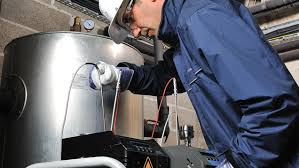
Machine calibration services are essential for maintaining the accuracy and reliability of various types of equipment and machinery. Through calibration, the performance of a machine is verified and adjusted to ensure that it meets specific standards and requirements. This is crucial for industries that rely on precise measurements and functionality, such as manufacturing, aerospace, healthcare, and engineering. Calibration services help to minimize the risk of errors and inaccuracies in machine outputs, which can have significant consequences on safety, quality, and compliance with regulatory standards. Additionally, regular calibration can extend the lifespan of machines and reduce the likelihood of costly repairs or replacements. By partnering with a reputable calibration service provider, businesses can benefit from expert knowledge, advanced technology, and traceable calibration certificates. This can give them confidence in the accuracy and consistency of their equipment, ultimately enhancing productivity and customer satisfaction. Overall, understanding the importance of machine calibration services is critical for ensuring the effectiveness and efficiency of industrial operations. It is an investment in quality, precision, and performance that can ultimately contribute to the success and competitiveness of a business.
Maximizing Efficiency with Professional Machine Calibration Services
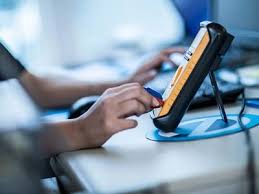
Professional machine calibration services are essential for maximizing efficiency in various industries such as manufacturing, engineering, and quality control. Calibration ensures that machines and equipment are operating at their optimal performance, resulting in improved accuracy, precision, and overall productivity. By maintaining calibration protocols, companies can reduce the risk of errors, minimize downtime, and ensure compliance with industry standards and regulations. Professional calibration services also provide detailed reports and documentation, which can be crucial for quality assurance and traceability. Overall, investing in professional machine calibration services is a strategic decision for businesses looking to achieve peak performance and efficiency.
The Benefits of Regular Machine Calibration Services
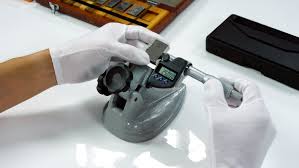
Regular machine calibration services can provide several benefits for businesses. Firstly, regular calibration helps to ensure that machines are functioning at their optimal level, reducing the risk of production downtime due to equipment failure. This can ultimately lead to increased productivity and cost savings for the business. Additionally, regular calibration services can also help to maintain the accuracy and precision of the machines, ensuring that the products or services produced meet quality standards and regulatory requirements. This can be particularly important for industries such as manufacturing, healthcare, and aerospace, where precision and accuracy are critical. Furthermore, regular calibration can help to extend the lifespan of the equipment by identifying and addressing any potential issues before they escalate into major problems. This can ultimately save businesses money by reducing the need for costly repairs or replacements. Overall, regular machine calibration services are essential for maintaining the reliability, accuracy, and efficiency of equipment, ultimately leading to improved productivity, cost savings, and compliance with industry standards.
Choosing the Right Provider for Your Machine Calibration Services
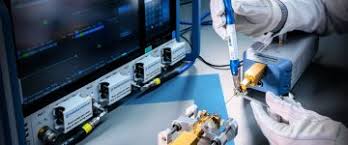
When choosing a provider for machine calibration services, it is important to consider their experience and expertise in the industry. Look for a provider with a proven track record of accuracy and precision in their calibration services, as well as a strong understanding of industry standards and regulations. Additionally, consider the provider's accreditation and certifications, as this can serve as an indication of their commitment to quality and reliability. It is also important to inquire about the provider's calibration process and equipment, ensuring that they use advanced and well-maintained tools to perform the calibration. Customer reviews and testimonials can also provide valuable insight into the provider's reputation and the quality of their services. Finally, consider the provider's customer service and support, as clear communication and prompt responses are essential for a successful calibration service. By carefully evaluating these factors, you can confidently choose the right provider for your machine calibration services.
How Machine Calibration Services Can Improve Product Quality
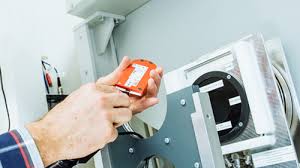
Machine calibration services can improve product quality by ensuring that the equipment used in the manufacturing process is functioning accurately and producing consistent results. Calibration involves adjusting and testing the machines to ensure they are operating within specified tolerances and are providing accurate and reliable measurements. This helps to minimize variations in product quality, reduce the risk of defects or errors, and ultimately improve the overall consistency and reliability of the finished products. By regularly calibrating machines, manufacturers can maintain quality standards, meet regulatory requirements, and enhance customer satisfaction.
Ensuring Accuracy and Precision with Machine Calibration Services
Ensuring accuracy and precision with machine calibration services is essential for businesses operating in fields such as manufacturing, engineering, and quality control. Calibration services help to maintain the accuracy of measuring and testing equipment, ensuring that the output of these machines is reliable and consistent. By regularly calibrating equipment, businesses can minimize the risk of producing defective products, reduce wastage, and maintain compliance with industry standards and regulations. This can result in cost savings and improved operational efficiency. Professional calibration services utilize advanced tools and techniques to ensure that equipment is calibrated to the highest standards. This involves making adjustments to equipment to correct any deviations from standard specifications, thus guaranteeing accurate and precise measurements. Additionally, calibration services provide documentation and certification, demonstrating that equipment is calibrated and meets the required standards. This is often a crucial requirement for businesses operating in regulated industries. Overall, investing in machine calibration services is crucial for ensuring the reliability and accuracy of equipment, leading to improved product quality, regulatory compliance, and operational efficiency.
Common Misconceptions About Machine Calibration Services Debunked
electronic test equipment calibration services
Machine calibration services are often misunderstood, leading to several common misconceptions. One of the most prevalent misconceptions is that machine calibration is only necessary for new equipment. In reality, regular calibration is essential for maintaining accuracy and consistency in machine performance, regardless of age. Another common misconception is that calibration can be done in-house without specialized training or equipment. However, proper calibration requires expertise, precision tools, and traceability to international standards. Attempting to calibrate machinery without the necessary resources can lead to inaccurate results and potential safety hazards. Additionally, some may believe that calibration is an unnecessary expense that can be avoided. In contrast, the cost of calibration is a small price to pay compared to the potential costs of inaccurate measurements, product defects, or production downtime resulting from uncalibrated equipment. Lastly, there is a misconception that calibration is a one-time task. In reality, regular calibration intervals are essential to ensure that machines continue to perform within specified tolerances over time. Ignoring calibration schedules can lead to a gradual decline in accuracy and reliability. Ultimately, understanding the importance of machine calibration services and debunking these misconceptions is crucial for maintaining efficient and accurate operations in various industries.
Top Factors to Consider When Selecting Machine Calibration Services
1. Accreditation and Certification: It is essential to ensure that the machine calibration service provider holds relevant accreditations and certifications from recognized bodies such as ISO/IEC 17025. 2. Expertise and Experience: Look for a calibration service with a track record of successfully calibrating similar machines and equipment. Experience and expertise in your specific industry can ensure accurate calibration. 3. Traceability and Documentation: The calibration service should provide traceable calibration certificates and comprehensive documentation to meet regulatory and quality requirements. 4. Turnaround Time: Consider the service provider's turnaround time for calibration, as well as their flexibility to accommodate urgent calibrations. 5. Technical Capabilities: Assess the calibration service provider's technical capabilities, equipment, and calibration methods to ensure they can meet your machine's calibration requirements. 6. Calibration Range: Verify that the service provider offers a wide calibration range to accommodate all of your specific machine's measurement requirements. 7. Quality Management System: Evaluate the service provider's quality management system to ensure they have robust processes in place to deliver consistent and reliable calibration results. 8. Customer Service and Support: Consider the level of customer service and support provided by the calibration service, including responsiveness, communication, and after-sales support. 9. Cost-Effectiveness: While cost should not be the sole determining factor, it's essential to consider the overall value and cost-effectiveness of the calibration services offered. 10. Reputation and References: Research the reputation of the calibration service provider and seek references from previous clients to gauge their reliability and performance.
The Role of Technology in Modern Machine Calibration Services
Modern machine calibration services rely heavily on technology to ensure precision and accuracy in measurements. Advanced tools such as laser interferometers, coordinate measuring machines (CMM), and computer-aided design (CAD) software are utilized to calibrate various types of machines, including industrial robots, CNC machines, and 3D printers. These technological advancements allow for faster and more efficient calibration processes, minimizing downtime and optimizing machine performance. Additionally, the use of software-based calibration systems enables real-time monitoring and adjustments, resulting in improved quality control and compliance with industry standards. Furthermore, the integration of Internet of Things (IoT) technology in calibration services allows for remote monitoring and predictive maintenance of machines, reducing the risk of unexpected breakdowns and costly repairs. Overall, the role of technology in modern machine calibration services is indispensable in meeting the increasingly demanding requirements of the manufacturing industry.
Getting the Most Out of Your Investment in Machine Calibration Services
Machine calibration services are a crucial aspect of ensuring that your equipment is functioning at its optimal level. By investing in regular machine calibration, you can minimize the risk of errors and inaccuracies in your operations, leading to increased productivity and efficiency. Professional machine calibration services utilize advanced technology and precision instruments to ensure that your equipment meets industry standards and requirements. This helps in achieving accurate and reliable measurement results, which is essential for maintaining product quality and meeting regulatory standards. In addition to enhancing accuracy, machine calibration services also contribute to prolonging the lifespan of your equipment. By detecting and correcting any issues early on, you can prevent costly breakdowns and repairs, ultimately saving you money in the long run. Furthermore, investing in machine calibration services can also provide you with a competitive advantage in your industry. Accurate and reliable equipment is essential for gaining the trust of your customers and stakeholders, as well as for meeting the demands of a highly competitive market. Overall, getting the most out of your investment in machine calibration services involves prioritizing the regular maintenance and calibration of your equipment. By doing so, you can ensure that your operations run smoothly and effectively, ultimately leading to increased profitability and success.
